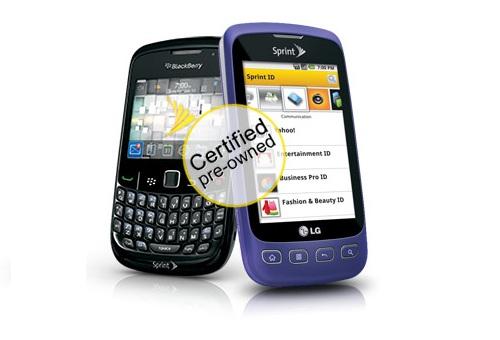
If you have or have ever worked in a cell phone retail location, you have probably had the pleasure of telling somebody that their broken device will be replaced with a “brand new” refurbished device. Or, if you’ve never worked in a cell phone retail store, you’ve probably been the one to receive said “brand new” refurbished device. Either way, both parties already know that 9 times out of 10 (I made that statistic up, by the way, so don’t quote me on that) you’re going to have a grumpy customer, because who really wants a refurbished device?
I’ve heard a lot of misconceptions about refurbished devices, so much so that before I even really knew what ‘refurbished device’ meant my thoughts on it were tainted. I’ve heard a lot of myths of what refurbished really means, from “Somebody smashed it and they just resell it to us,” to “It’s had water dumped on it and they just dry it off and give it to other people with broken phones.” But then I found out that basically refurbished just means it isn’t going to be a perfect device. It’s been used before, yes. You will not be the first owner. But the phone has been through services to get it as close to perfect as it can be. It will at least be more usable than whatever device you are currently carrying.
I personally don’t have a problem with refurbished devices anymore, after learning more about them. Is every single one going to be perfect? No. There’s always going to be that risk, whether the device is new or refurbished, that something is going to go wrong with it. I would say that before agreeing to accept a refurbished device, you get educated on the return policy of whatever company you’re getting the device from. I would also suggest the same for a new device, though.
Now, I have had people who have just had really bad luck with refurbished phones. Really, I don’t think it was that the refurbished devices were no good, it was generally a common defect with the model itself that was a “known issue” yet they kept handing out the same phones with the same issue. I feel that if a company knows there is a “known issue” with the phone, then it should be their obligation to fix that issue when (if) the phones are in production to avoid future problems with customers, and then offer the new and improved device to customers who experience the previously known issue. Many companies do this, but there have been those few that haven’t.
It’s funny to me, because a lot of people turn away from refurbished devices because of the way it might look. Most descriptions of refurbished phones have a disclaimer that state that the phone might have a few scratches on the housing, and while that might be true; I would rather have a few scratches than to keep a phone that acts like it needs a straight up exorcism to get any better. I loved dealing with situations like that. Apps would open on their own, numbers and letters would be entered without anyone being near the keypad, and they wouldn’t want a free refurbished replacement device because it may have a small blemish. Suit yourself, but there wasn’t much else I could do for your current situation. Some people just really hate refurbished devices.
I myself have only had one issue with a refurbished device that was the charging port, which they replaced with another refurbished that worked fine. I guess it just depends on one’s own experience with refurbished devices that will make or break the suggestion when it’s been made. I think that although they’re not brand new, they’re not exactly at the bottom of the phone totem pole. The bottom would be if a company offered nothing in place of your Samsung Galaxy Note II. That would be the bottom.
How do you feel about refurbished devices? Do you think they’re that much lower quality than a new phone? Have you had bad luck with refurbished phones, or do you hardly notice a difference? Let me know what you think!